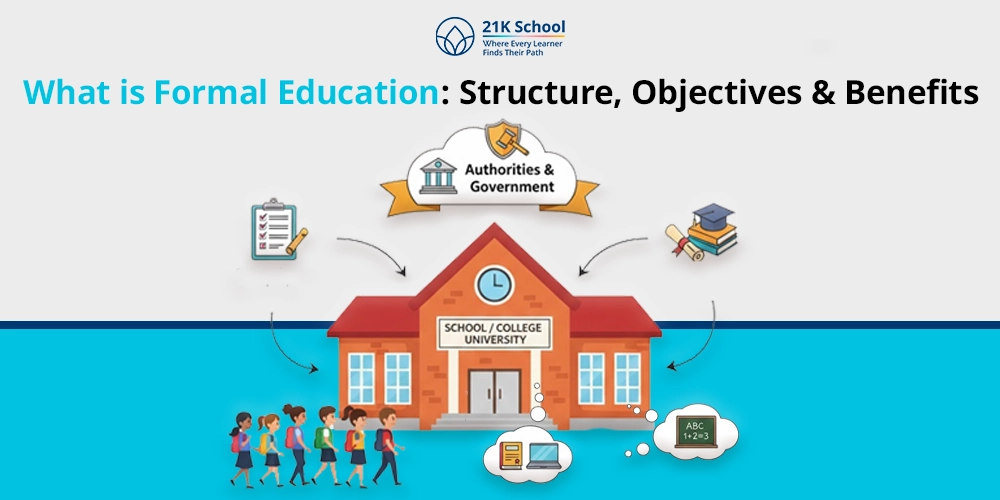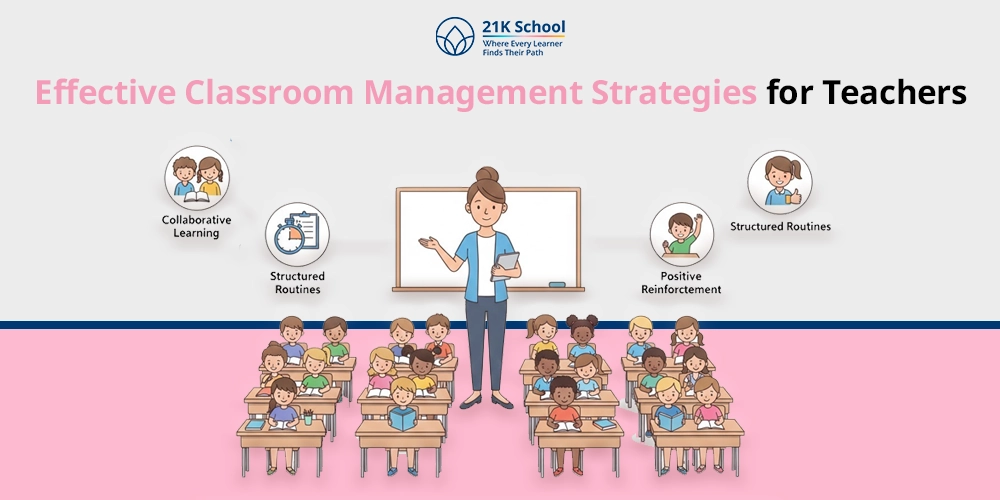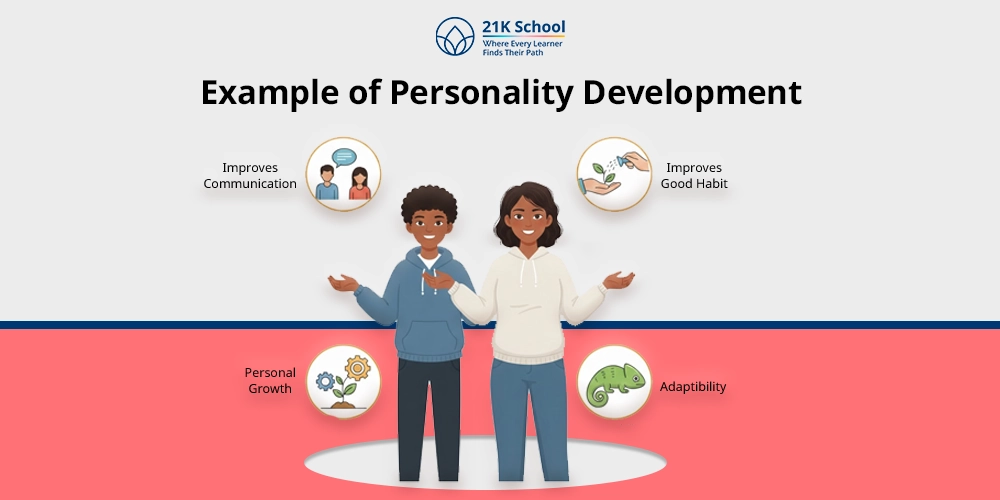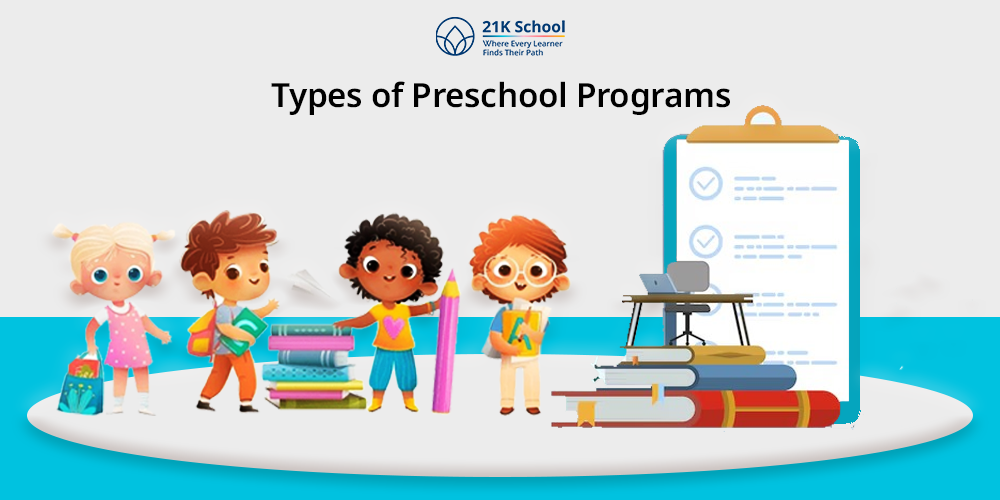
Choosing a preschool is a big step in a child’s early journey. It’s not just about a place to stay during the day; it’s about building the foundation for how a child learns, plays, socialises, and grows emotionally.
Whether you’re looking for structure, creativity, or a mix of both, there’s a preschool model out there that fits your child’s unique personality and your family’s values.
This blog breaks down the most common types of preschool programs in simple terms, helping you understand what each one offers.
Types of Preschool Programs
Preschools are not one-size-fits-all education . Each program follows a different educational philosophy and learning method . The key is to find a method that suits your child’s temperament and supports their natural development.
Here’s a closer look at the major preschool models available today.
1. Montessori Preschool
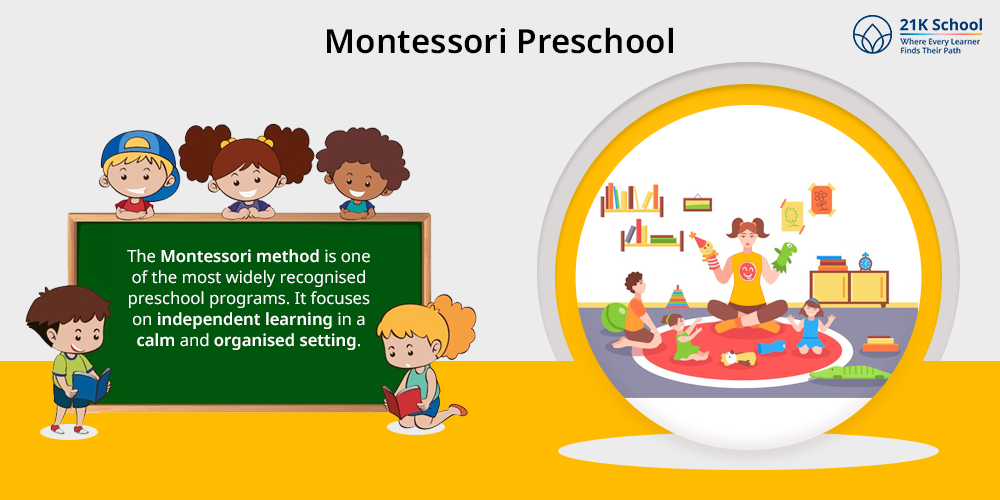
The Montessori method is one of the most widely recognised preschool programs. It focuses on independent learning in a calm and organised setting.
Children are free to choose their activities and learn through hands-on materials designed to build real-world skills.
Instead of being teacher-led, Montessori classrooms encourage self-regulated learning . Kids learn everything from tying shoelaces to counting and reading at their own pace.
This method supports individual growth, problem-solving , and practical life skills, making it ideal for children who thrive in a peaceful, structured space.
2. Reggio Emilia Approach
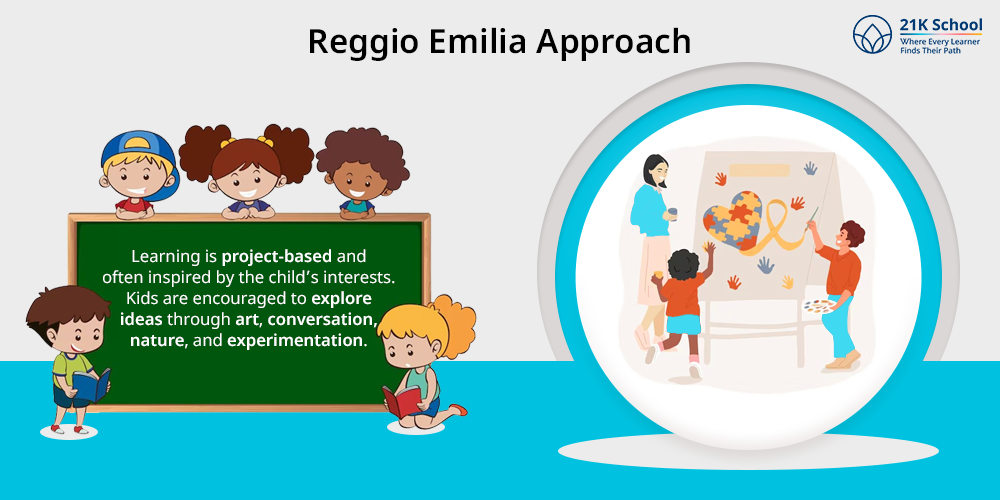
Originating in Italy, the Reggio Emilia approach sees children as capable, curious thinkers.
Learning is project-based and often inspired by the child’s interests. Kids are encouraged to explore ideas through art, conversation, nature, and experimentation.
This program values collaboration , creative thinking , and emotional expression. Teachers act more like co-learners and guides, documenting each child’s progress in detail.
If you’re looking for a flexible, child-centred preschool experience that embraces artistic expression, Reggio Emilia is a strong choice.
3. Waldorf Education
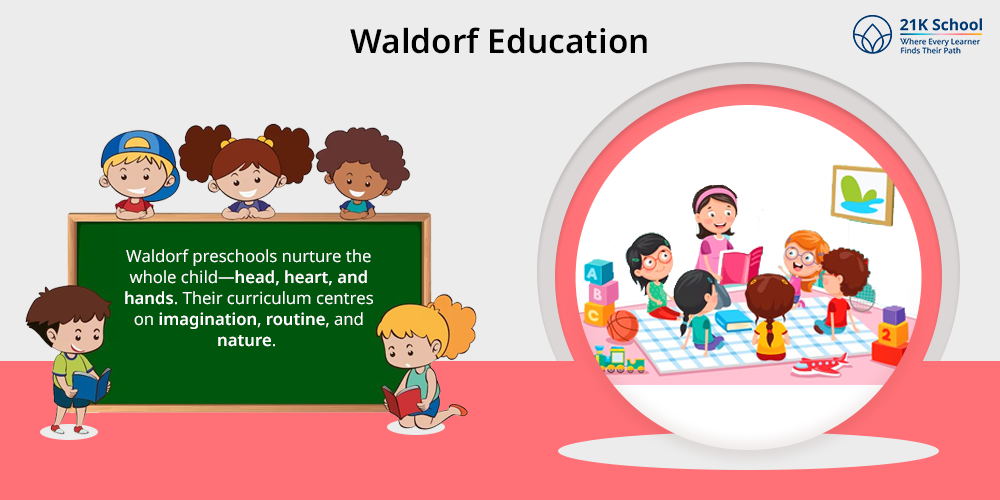
Waldorf preschools nurture the whole child—head, heart, and hands. Their curriculum centres on imagination, routine, and nature.
There’s a strong emphasis on rhythm, with days structured around predictable patterns like storytelling, music, baking, and outdoor time.
Technology is kept out of the classroom, and natural materials like wooden toys and wool are used.
Waldorf education promotes creativity, empathy , and self-confidence, making it ideal for families who value simplicity and emotional well-being.
4. HighScope Curriculum
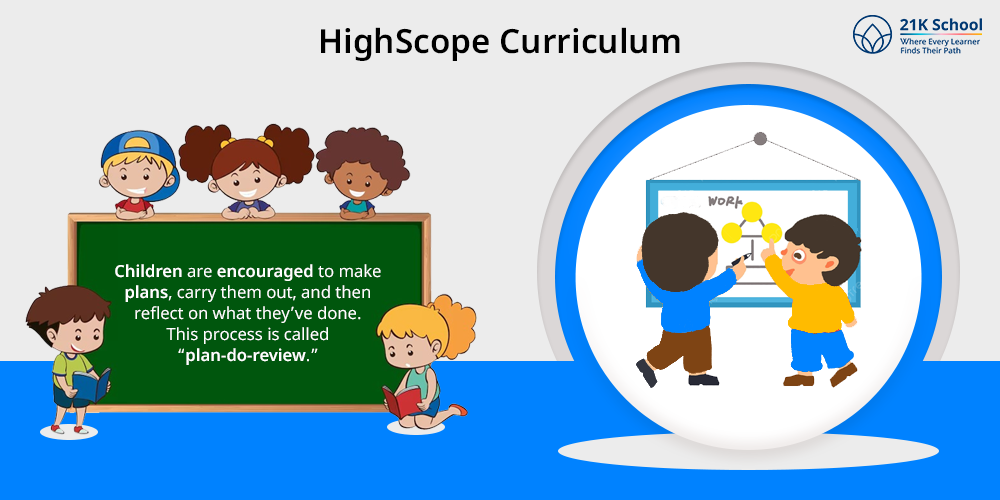
The HighScope approach is rooted in early childhood research and emphasises active participation.
Children are encouraged to make plans, carry them out, and then reflect on what they’ve done. This process is called “plan-do-review.”
It blends academic readiness with independence, helping kids build cognitive and social skills. Teachers track each child’s development using consistent observations.
HighScope is especially effective in promoting logical thinking and confidence through daily routines and choice-making.
5. Bank Street Program
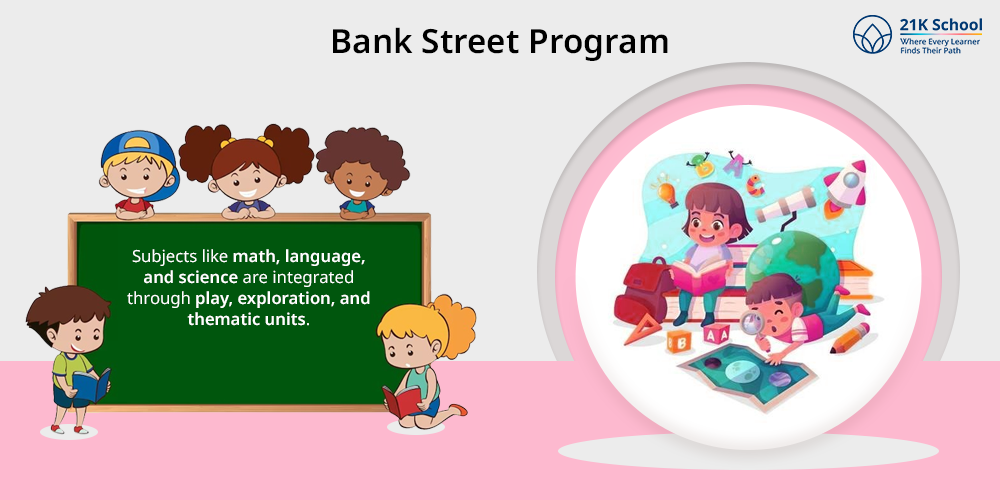
The Bank Street model is built around the belief that children learn best through experience. It offers hands-on, real-world learning by connecting classroom lessons to daily life.
Subjects like math, language, and science are integrated through play, exploration, and thematic units.
Teachers create a positive learning environment where children feel free to express themselves, ask questions, and develop emotionally and socially.
The goal is to raise thoughtful, curious learners who are aware of the world around them.
6. Play-Based Preschool
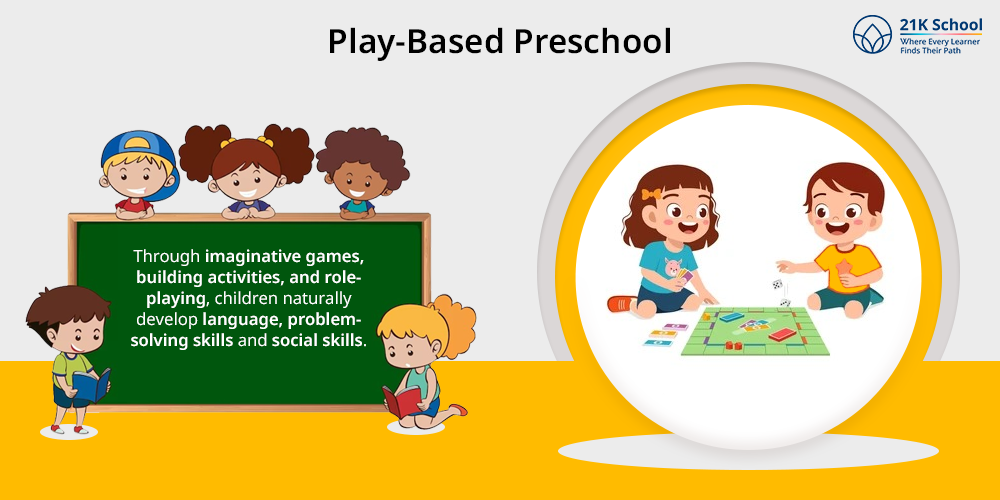
In play-based preschools, play is not just fun; it’s the main method of learning. Through imaginative games, building activities, and role-playing, children naturally develop language, problem-solving skills and social skills.
Teachers guide the process by offering tools and asking questions that spark curiosity.
This approach allows kids to explore the world around them without pressure, helping kids to become confident and eager learners. It’s a perfect fit for young children who learn best through movement, discovery, and social interaction.
7. Academic-Focused Preschool
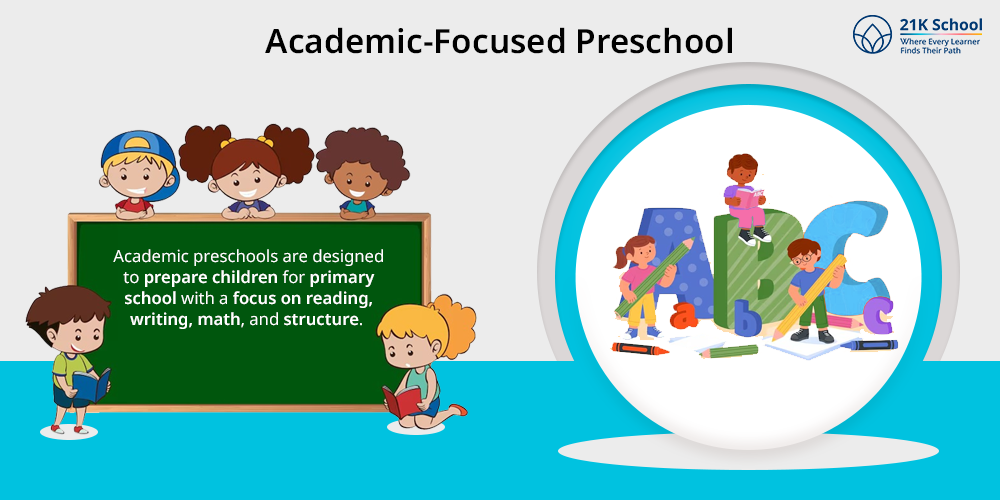
Academic preschools are designed to prepare children for primary school with a focus on reading, writing, math, and structure. These programs often follow a formal curriculum and include structured lessons and assessments .
While academic programs can help children build foundational skills early, they may offer less time for free play and creativity. Parents who want their child to gain a head start on school subjects might find this approach suitable.
8. Religious or Faith-Based Preschool
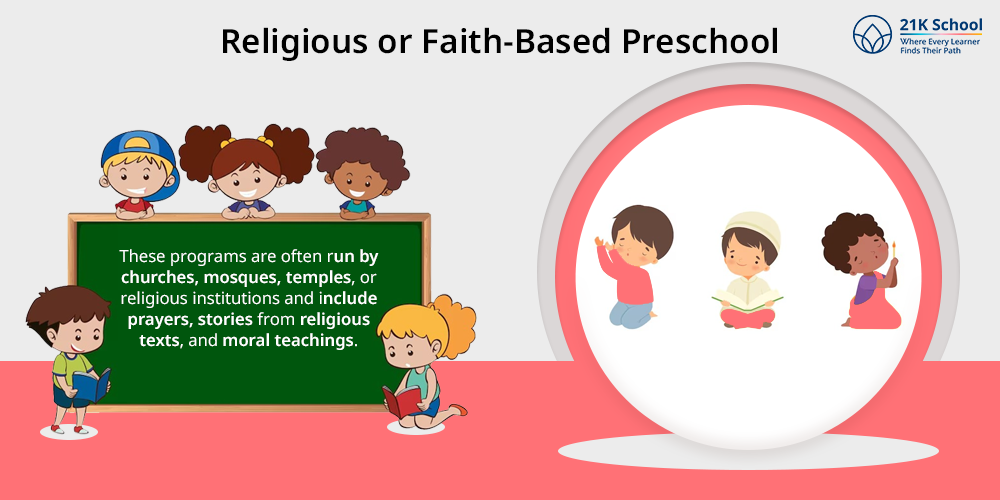
Faith-based preschools combine early learning with religious or spiritual values.
These programs are often run by churches, mosques, temples, or religious institutions and include prayers, stories from religious texts, and moral teachings.
In addition to basic academics, children are taught about kindness, honesty, gratitude, and community service. This option is often chosen by families looking to integrate their faith with their child’s early education.
9. Parent Co-Operative Preschool
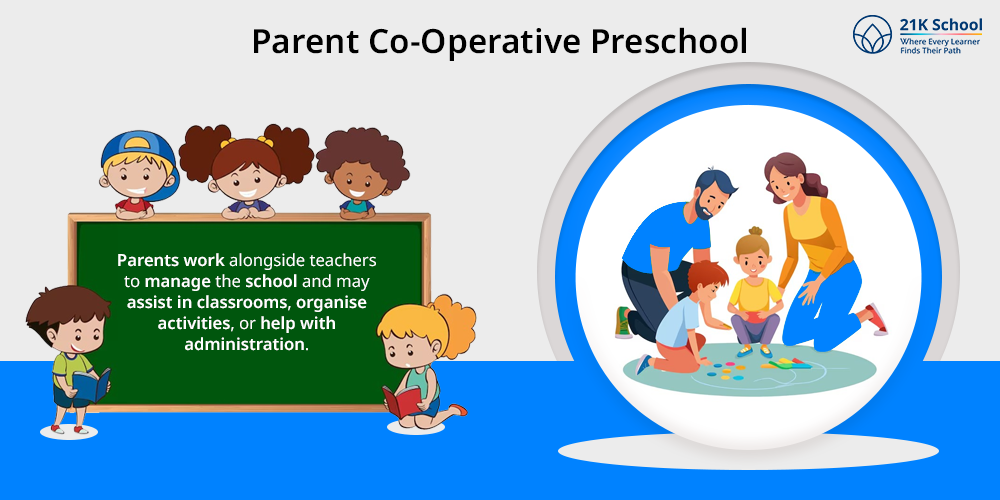
Co-op preschools emphasise the importance of parents’ roles in a child’s life . Parents work alongside teachers to manage the school and may assist in classrooms, organise activities, or help with administration.
These schools are usually more affordable and promote a strong sense of community and shared responsibility. Children benefit from the involvement of many caring adults, while parents gain insight into their child’s learning.
It’s ideal for families who want to play an active role in preschool education.
Other Types of Preschool Programs
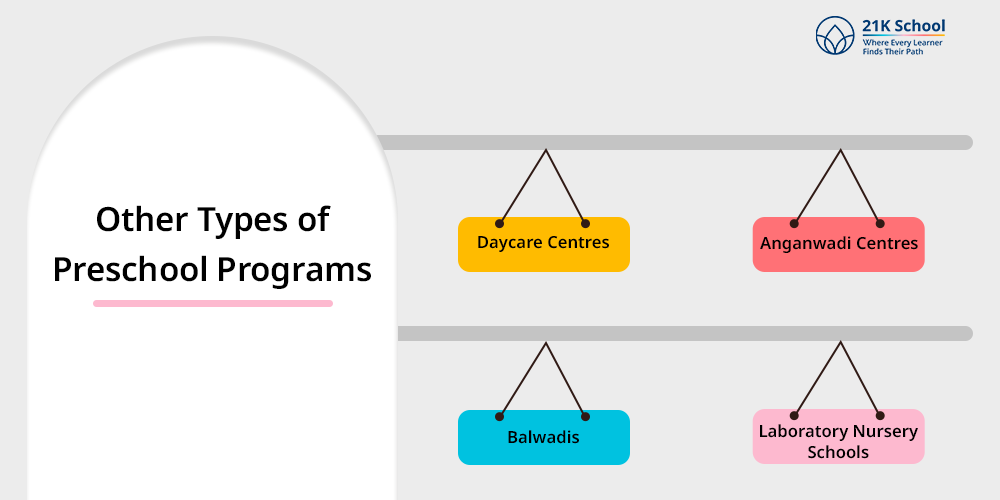
Beyond mainstream models, there are several alternative preschool options, especially in India, that serve different communities and needs.
1. Daycare Centres
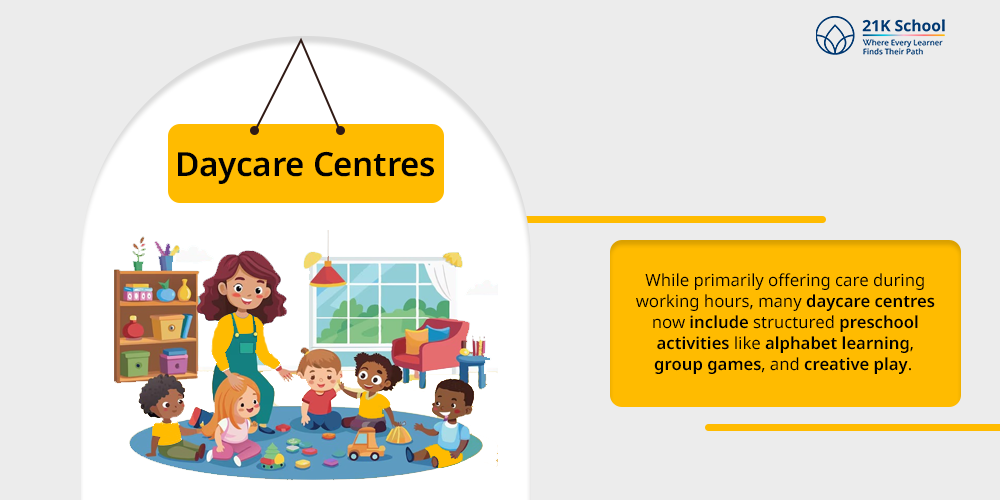
While primarily offering care during working hours, many daycare centres now include structured preschool activities like alphabet learning, group games, and creative play.
These are practical for parents seeking both childcare and basic educational support. Daycare programs vary widely in quality, so it’s essential to look for centres with trained staff and a safe, engaging environment.
2. Anganwadi Centres
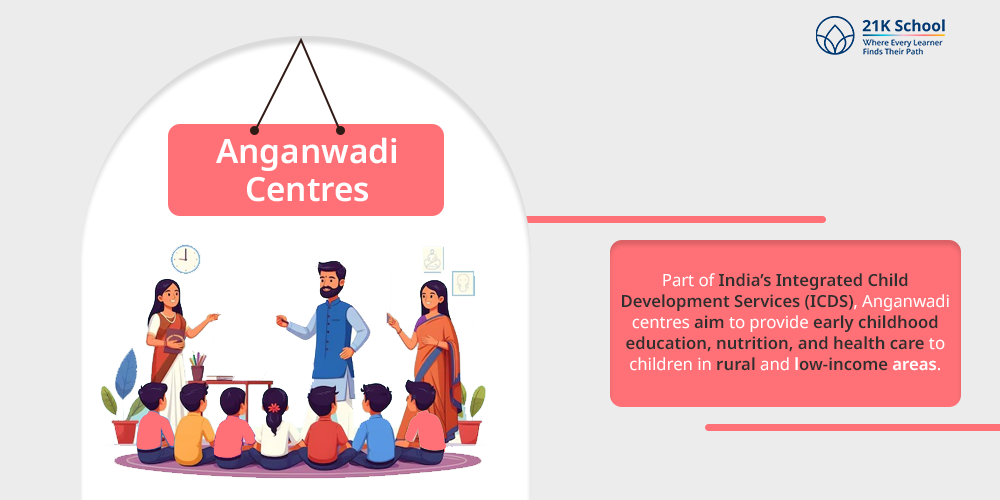
Part of India’s Integrated Child Development Services (ICDS), Anganwadi centres aim to provide early childhood education , nutrition, and health care to children in rural and low-income areas.
They offer a mix of preschool learning, mid-day meals, and health check-ups, focusing on children aged 3 to 6. Anganwadis play a crucial role in promoting inclusive education across India.
3. Balwadis
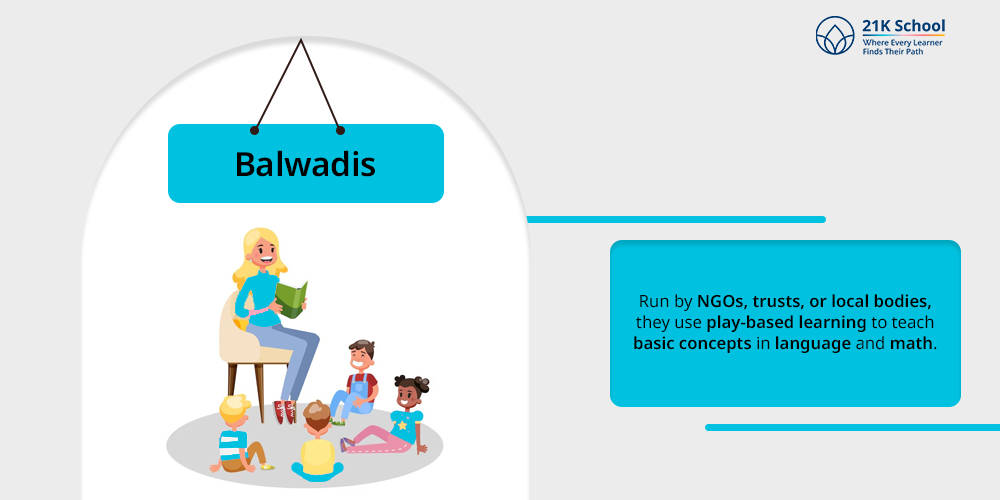
Balwadis are low-cost community preschools found across India, especially in semi-urban and rural regions. Run by NGOs, trusts, or local bodies, they use play-based learning to teach basic concepts in language and math.
They are instrumental in offering early education access to children from under-served communities and preparing them for primary school.
4. Laboratory Nursery Schools
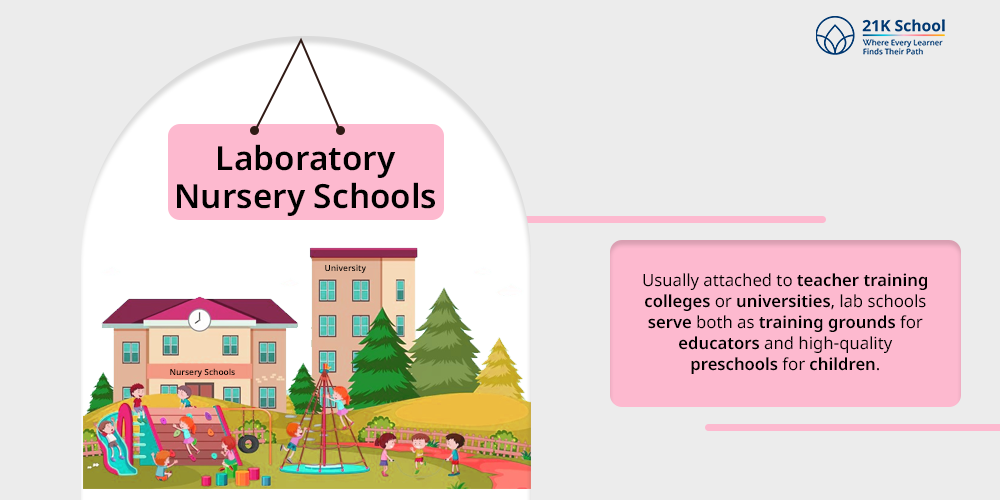
Usually attached to teacher training colleges or universities, lab schools serve both as training grounds for educators and high-quality preschools for children.
They are often at the forefront of innovation, using the latest educational research to shape their teaching methods .
These schools offer well-structured, developmentally appropriate programs that combine learning, observation, and experimentation in the classroom.
Conclusion
There is no single “best” preschool program. What matters most is choosing an environment where your child feels safe, happy, and inspired to learn.
Whether you’re drawn to the independence of Montessori, the creativity of Reggio Emilia, the playfulness of play-based learning, or the structure of academic models, your decision should reflect your child’s personality and your family’s values.
Take time to visit preschools, talk to teachers, and observe classrooms in action. A nurturing early learning experience sets the tone for your child’s future success, not just in academics, but in life.

